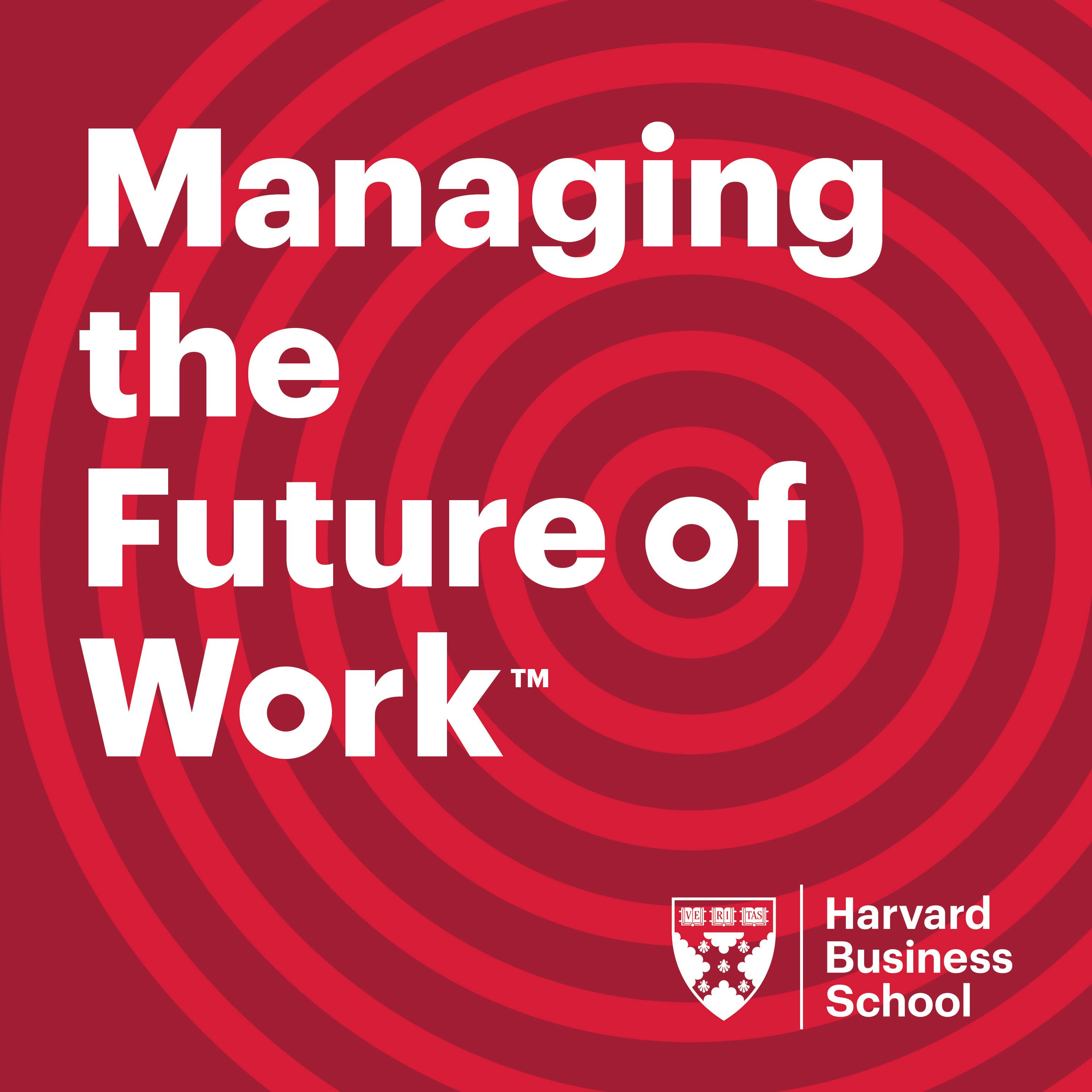

HBS Managing the Future of Work
Harvard Business School
Artificial intelligence. Robotics. The Gig Economy. Globalization. The world is changing at a dizzying pace in ways that will have a profound effect on the economy, jobs and the flow of talent. How will firms cope with the changes ahead and what steps do they need to take today? Each episode features faculty from the world’s leading business school interviewing CEOs, technologists and experts on the bleeding edge discussing how to survive and thrive by managing the future of work.
Episodes
Mentioned books

Sep 30, 2020 • 33min
How San Antonio’s Project Quest facilitates upward mobility
In confronting the economic and social crises roiling the US in late 2020, it helps to have deep roots in local communities. San Antonio’s Project Quest brings to the task decades of success in advancing upward mobility in underserved areas. The nonprofit’s savvy, resilience, and willingness to learn from experience yield lasting improvements in the prospects of its participants. President & CEO David Zammiello explains how the group partners with employers and community colleges and provides the “wraparound” support services individuals need to gain skills and secure good jobs.

Sep 25, 2020 • 1h 7min
MFW guest appearance: Joe Fuller on Braintrust's "The Way Work Should Work"
What's in store for the gig economy and how will Covid-19 change the nature of work? Managing the Future of Work project co-chair and podcast co-host Joe Fuller was the inaugural guest on The Way Work Should Work, the new podcast produced by Braintrust. We present the "away" half of the home-and-away pair of episodes that saw Joe interview the freelance platform's co-founders, Adam Jackson and Gabriel Luna-Ostaseski, in Episode 18.

Sep 23, 2020 • 29min
How brain games and AI can improve HR
Can neuroscience and AI improve on traditional approaches to hiring and evaluating workers? Pymetrics’ co-founder and CEO, Frida Polli, argues that the combination is necessary to overcome inherently biased human judgement and to bring empirical rigor to the task of matching talent to fast-changing job categories. The neuroscientist-turned-Harvard MBA shares her journey and explains how her company helps the likes of Unilever, LinkedIn, and Accenture factor workers’ cognitive, social, and emotional aptitudes in their personnel decisions.

Sep 18, 2020 • 40min
MFW guest appearance: Joe Fuller on Behind Bundle
Managing the Future of Work co-chair and podcast co-host, Joe Fuller, is a close observer of the care economy. He recently appeared as a guest on Behind Bundle, the podcast produced by employee benefits startup Bundle. The concierge service, which combines care and education coverage, was founded by HBS graduate Kayla Lebovits. Fittingly, we’re posting this episode the week of National Working Parents Day.

Sep 16, 2020 • 32min
How Covid and BLM strengthen the case for shoring up historically Black colleges
Covid-19 and the Black Lives Matter movement have focused attention on disparities in economic opportunity between Black and white America. This has added urgency to efforts to bolster Black students' access to higher education. It's a pivotal moment for UNCF, founded at the end of WWII as the United Negro College Fund. The organization supports historically Black colleges and universities (HBCUs). President and CEO, Dr. Michael Lomax, discusses the role of HBCUs in fostering economic opportunity and civic engagement and how changes in philanthropic activity and public policy can make a difference.

Sep 9, 2020 • 28min
MFW Dispatch: Jeff Ray
The pandemic has unsurprisingly produced a sustained surge in streaming video, with consumer and enterprise use doubling year-over-year during the second quarter of 2020. Viewing on mobile devices has skyrocketed. Brightcove’s software platform is a key component of the online video infrastructure. CEO Jeff Ray discusses video’s “evolutionary moment,” as remote work and virtual events become the norm and organizations build their video talent capacity internally and externally. He also notes the overall jump in school use, where the digital divide persists and threatens to widen achievement gaps.

Sep 2, 2020 • 34min
MFW Dispatch: Marissa Andrada
While adapting to the limitations imposed by the pandemic, fast food chain Chipotle is looking to emerge stronger by maintaining commitments to its workforce. As Chipotle’s chief diversity, inclusion, and people officer, Marissa Andrada, explains, the company anticipates long-term returns on its investment in employee education benefits and its flexible scheduling for shift workers.

Aug 27, 2020 • 35min
Braintrust takes aim at the gig platform middleman
Braintrust’s gig model gives freelancers the opportunity to keep more of what they earn and to have a say in running the platform. The not-for-profit aims to upend the status quo by replacing the typical gig middleman and assigning governing rights to users. The marketplace, which connects highly skilled tech talent with enterprise clients, uses blockchain tokens to grant users who help build the platform voting rights in strategy and policy decisions. Co-founders Adam Jackson and Gabriel Luna-Ostaseski discuss their experiment in realigning incentives.

Aug 25, 2020 • 35min
Cybersecurity for the post-Covid new normal of work
Covid-19 and the 2020 election stack up as unprecedented infrastructure challenges. And both raise the stakes for cybersecurity. The skills shortage in this area—estimated in the millions of workers—demands a strategic rethink by organizations relying on remote work and governments seeking to secure voting and coordinate responses to the pandemic. Telecom veteran and cybersecurity expert Bill Conner discusses emerging threats and new approaches.

Aug 20, 2020 • 30min
Tulsa Remote: Live here, work anywhere
Will Covid-19 empty superstar cities? While it’s too soon to say, metros outside the top tier are now in a better position to compete for talent. This plays to the strengths of programs like Tulsa Remote, which helps professionals who work remotely relocate to Tulsa, Oklahoma. Launched in 2018 by the George Kaiser Family Foundation, the highly selective program emphasizes diversity and community building. Founding Executive Director, Aaron Bolzle, discusses the importance of moving beyond the transactional aspects of such programs, and the keys to successful remote work.


